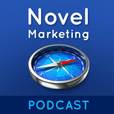
Summary: Different kinds of authors need different things from their home pages. Here is how to make sure you have the right kind of homepage.<br> Introduction<br> TLDR:<br> <br> * Not all authors are the same, their homepages need to do different things.<br> * Your homepage needs to:<br> <br> * Satisfy your visitor’s desires (why are they visiting your website in the first place)<br> * Accomplish your goals. (what do you want them to do now that they are on your site)<br> <br> <br> <br> James L Rubart (Jim): And in this episode, we’re going to talk about the five different kinds of homepages that authors use and figure out which one is going to work best for you. So Thomas, we’re telling people that not all homepages work for all authors. One size does not fit all. Is that what you’re saying?<br> Thomas Umstattd Jr.: That’s right. Different authors need different things from their home pages. And part of the reason this is the case is that your readers are different. So not all authors have the same kind of readers and not all authors are in the same place in their career. So they don’t have necessarily the same things to say. But ultimately your home page needs to satisfy your visitors’ desires. So what do they desire when they come to your website? What do they want? What are they looking for? And it needs to accomplish your goals as an author. So if you’re trying to sell your book, you’re going to have a different kind of homepage than if you’re trying to build anticipation for your first book that’s not out yet.<br> Jim: OK, so let’s go to the first homepage Web site. What would you call that, Thomas?<br> Homepage #1 Placeholder Website<br> TLDR:<br> <br> * Perhaps the best kind of website for unpublished novelists.<br> * Goal: start building domain authority and claim your place on the web.<br> * Look professional enough to impress publishers, agents, potential readers<br> * This is your business card<br> * Link to your social media<br> * Headshot<br> * Bio<br> * Mailchimp signup form for book updates.<br> * MyBookProgress<br> * What is the action you want them to take?<br> <br> Thomas: So the first kind of home page is what I’ll call a placeholder Web site. In fact, this home page isn’t just a home page. It is the entire Web site. So if you’re a novelist and you’re writing your first book, you need to have a home page.. You need to have yourname dot com or your name, your middle name, and your last name dot com–whatever it is you’re able to get reserved so you can start to build some authority, some reputation, some age on that domain. Google likes domains that have been around for a long time.<br> You want to start that time as soon as possible. And also you want to something you’re able to put on your business card, something to be able to give agents— or, if you’re going indie, to cover designers— just so that you exist, so you’re real. You’re not real until you’re really on Google. So you need to have that web site, but it doesn’t need to be this big complicated web site with lots of pages. A single web page is fine. So for a placeholder Web site.<br> Jim: Well, as you mentioned, this is your business card. This is where agents and editors and potential readers are going to go to find you. They want to see that you exist. Until you exist with a home page or just one page, people are not going to think you’re serious, so that’s why it’s critical.<br> Thomas: That’s right. Your goal here with this kind of web page is to start building your authority for Google and to start building your newsletter so that as people are stumbling across– you know, they hear about you, or you’re at a Christmas party and you’re like “oh yeah. And you can find me at my name dot com.
